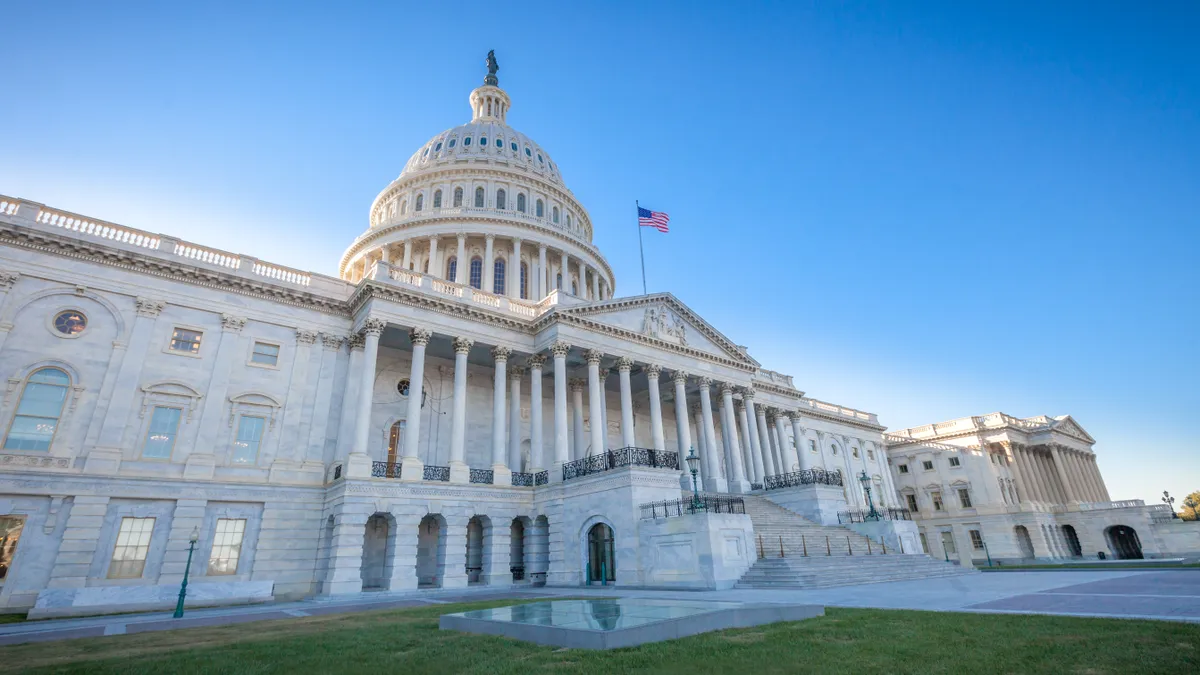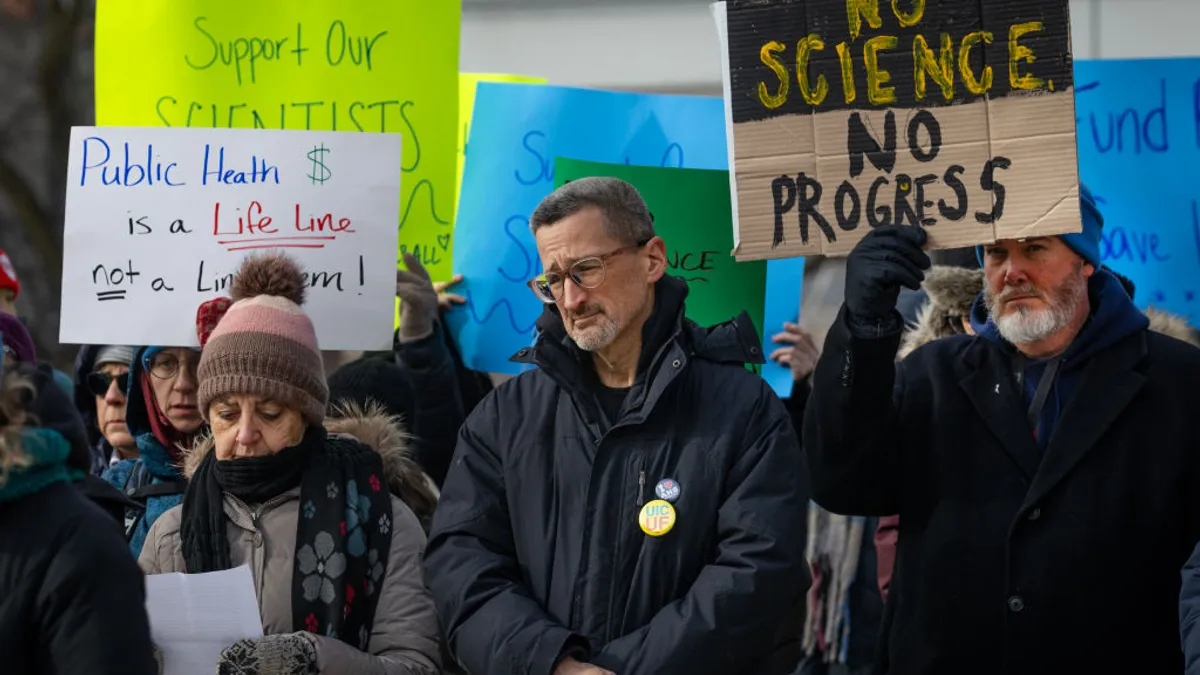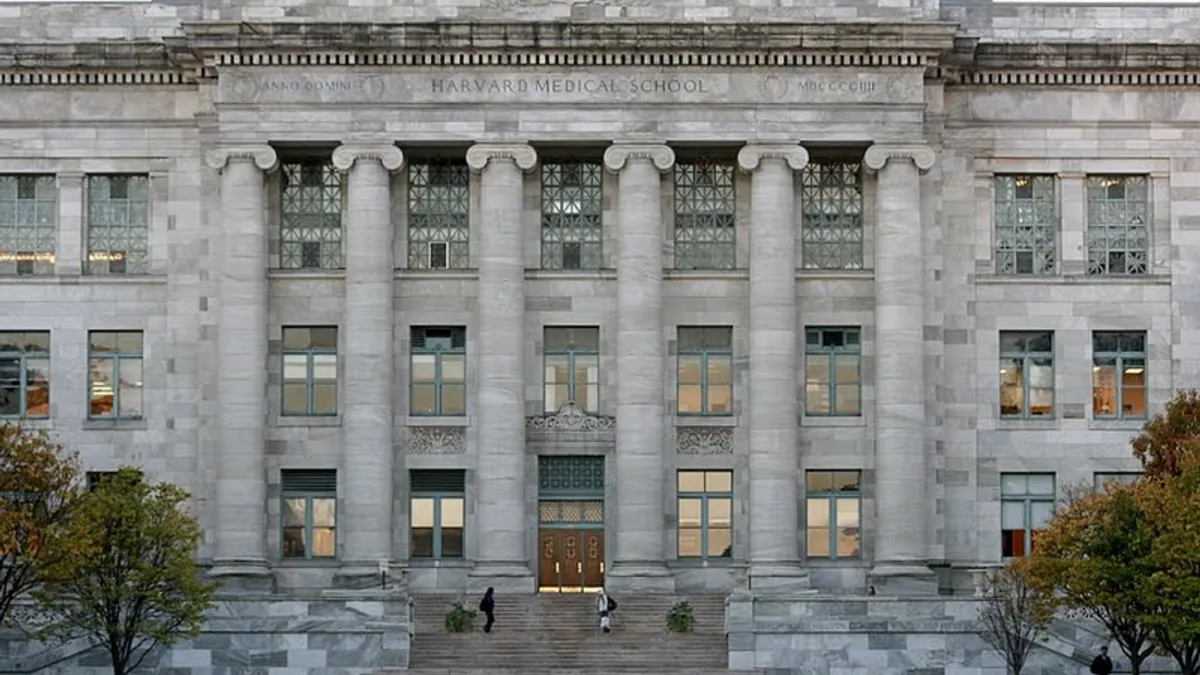CHICAGO — Political developments impacting colleges have come at a breakneck pace this year. And that was before President Joe Biden announced on Sunday he wouldn’t run for reelection, upending the 2024 presidential contest.
At a session of the National Association of College and University Business Officers’ annual meeting this week, panelists described some of the twists and turns for colleges coming from Washington D.C.
For one, college leaders are bracing for major regulatory changes, including those that govern overtime pay and how higher education institutions must investigate sexual misconduct.
Then there's the U.S. Supreme Court's recent overturning of the Chevron doctrine — a four-decade precedent that gave agencies the power to interpret ambiguous statutes. That decision could open many of the U.S. Department of Education’s regulations to new legal challenges.
Things haven’t slowed down in Congress either — House Republicans have vowed to ramp up oversight of colleges, arguing they have failed to protect their students from antisemitism in the wake of the Israel-Hamas war.
Below, we’re rounding up three policy developments panelists highlighted Sunday during the session.
Tax legislation could be coming — but not this year
Congress is deeply divided, with Democrats narrowly holding power in the Senate and Republicans having a thin majority in the House.
Gridlock has ensued, with the 118th Congress on course to become one of the least productive in decades. Federal lawmakers passed just 34 bills last year, a count that includes legislation to keep the government operating.
“What this means is you’re going to hear a lot about the introduction of certain pieces of legislation,” said Liz Clark, NACUBO’s vice president of policy and research. “Members of Congress are going to talk about bills they’ve introduced and what they plan to do, but it’s important to still take a step back and remember that that is election year fodder.”
Although the ideas presented in new proposals won’t necessarily go away, it’s unlikely they will reach President Joe Biden’s desk anytime soon. Congress will adjourn in early January, and all legislation not passed will have to be reintroduced in the next session to be considered anew.
Still, Clark noted that some lawmakers have been looking at tax laws in response to how campuses have addressed campus unrest since the Israel-Hamas war broke out. Many high-profile lawmakers have accused colleges of failing to protect students against rising antisemitism, and House Republicans have launched investigations into practices at several universities.
Rep. Jason Smith, a Republican who chairs the House Ways and Means Committee, has even questioned the tax-exempt status of several top-ranked colleges, arguing that they’ve failed to uphold their responsibility to protect students from antisemitism.
One recently introduced proposal would impose a one-time 6% tax on the endowments of 10 highly selective universities — including Harvard, Yale and Stanford — to in part fund Israel's war with Hamas.
“Many of America’s so-called ‘top’ universities are failing to condemn antisemitism and violence against Jewish students on their campuses,” Sen. Tom Cotton, a Republican from Arkansas, said when introducing the proposal last December. “We should levy this tax on these schools’ endowments.”
Such legislation isn’t likely to go anywhere during an election year — or maybe ever. Still, Congress plans to work on a major tax reform bill in 2025, when Trump-era tax cuts will expire. If lawmakers extend those cuts, it would cost billions of dollars, Clark said.
That money could partially come from the legislative proposals targeting colleges.
“Where are they going to find coins in the couch cushions?” Clark said. “In some of these ideas, in some of the legislation that has been introduced.” “
Congress must pass Education Department appropriations and the farm bill
Despite the gridlock, Congress must pass several important pieces of legislation, including appropriations for the Education Department and the farm bill, which provides significant levels of funding for land-grant universities.
Both of those bills are supposed to be completed by Sept. 30. But a divided Congress could unravel the efforts.
“Each of these deadlines really do represent a significant challenge, requiring very careful negotiation in both the House and Senate,” said Ashley Jackson, NACUBO’s director of government affairs.
Deep divisions have already emerged between Republican and Democratic proposals over education funding.
A Republican-led committee advanced a bill earlier this month that would give the Education Department $72 billion in discretionary funding, which falls about 10% below Biden’s request. The proposal would also keep the maximum Pell Grant award at $7,395, far less than the president's proposal to bump it to $8,145.
And the bill would slash $615 million from Federal Work-Study — halving funding for the program.
Rather than coming together to approve a budget bill, Clark predicted lawmakers will once again pass a continuing resolution, which is a temporary spending bill to keep the government open.
“If they don’t do that, that’s when we wind up in a government shutdown situation,” Clark said.
Colleges face overtime, financial value transparency and Title IX regulations
Meanwhile, several regulatory changes will have major impacts to college budgets.
They include a recent rule from the U.S. Department of Labor that raised the salary threshold for overtime pay eligibility to $43,888 on July 1. The threshold will jump again on Jan. 1, to $58,656, and then automatically update every three years.
Although the rule keeps exemptions in place for employees whose primary responsibility is teaching — meaning professors and instructors won’t be affected — it could impact many staff roles at colleges.
Colleges are likely raising salaries or reclassifying employees to comply with the rule, Clark noted. Some may even be restructuring certain jobs or whole departments. Higher education experts have previously noted that some institutions would struggle to absorb the resulting labor cost increases.
“We have been told by institutions that some of your most problematic areas are with academic advisors, admissions counselors, residence hall managers, athletic trainers, and event coordinators,” Clark said.
Other regulations are likely to create headaches for college officials.
Last year, the Biden administration released a new gainful employment rule, which requires career education programs to prove that their graduates can repay their federal student loans and that at least half of them earn as much as workers with only a high school diploma in the same state. Those regulations largely impact only for-profit colleges and nondegree programs at nonprofit institutions.
However, the Biden administration also released a financial value transparency rule that will impact all college programs.
It will create a new website for students with information on higher education programs, including their tuition and fees and how much their graduates earn.
Certificate and graduate programs whose students graduate with high debt burdens will face additional requirements: Their prospective students will have to certify that they’ve seen this information before they can enroll.
“Financial value transparency will have your institutions providing a fair amount of new disclosures to all students in all programs,” said Bryan Dickson, NACUBO’s director of student financial services and educational programs. “It will be a reporting nightmare.”
The gainful employment and financial value transparency rules were scheduled to take effect July 1, but the Education Department pushed the deadline to Oct. 1 to give colleges more time to comply with the new reporting requirements.
Earlier this year, the Education Department also released its long-awaited regulations on Title IX, a sweeping law that prohibits sex-based discrimination in federally funded colleges. The regulations expand the law’s protections to LGBTQI+ students and change how colleges must respond to reports of sexual misconduct.
“As business officers, you need to be aware of the resources that are necessary to effectively implement these regs and make sure you’re in compliance with the reporting and disclosure requirements,” Dickson said.
He added that business officers will need to ensure their colleges have the resources to provide institutionwide training to employees about the new rule.
“It’s not just a student affairs thing,” Dickson said. “It’s a campuswide deal.”
Those regulations take effect Aug. 1 — although due to legal action, not for all colleges and universities.
Federal judges have temporarily blocked the rule from taking effect in at least 15 states. And one ruling pauses the rule’s implementation at over 600 colleges, including in states where the rule hasn’t been blocked.






















